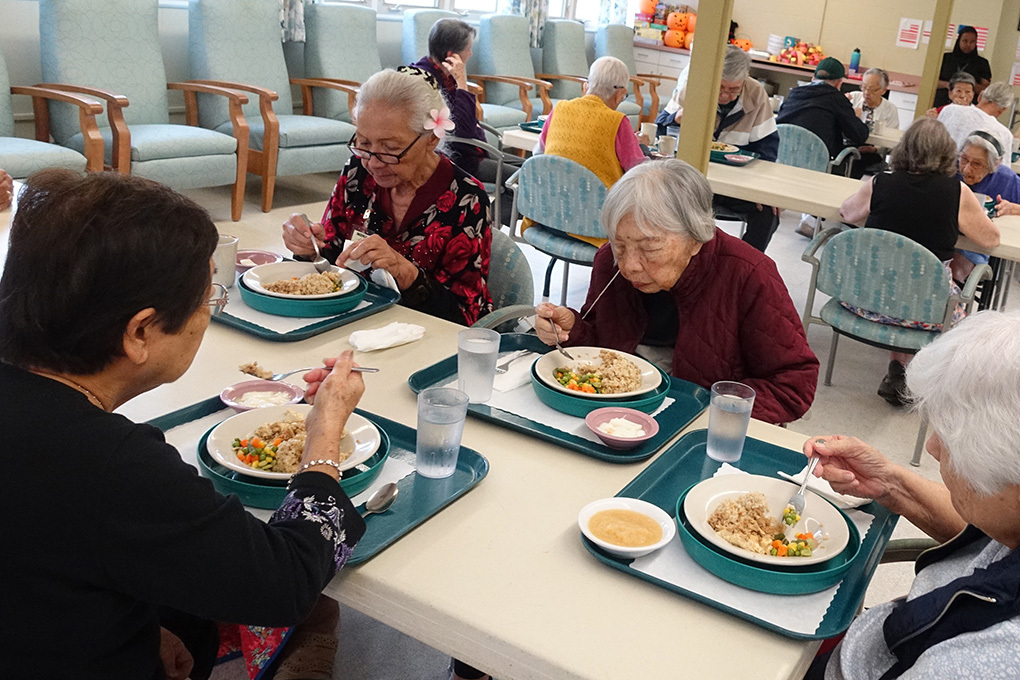Deciding whether to move aging parents into a nursing home is a deeply personal and challenging decision. It’s one of those crossroads in life that demands a mix of practicality, empathy, and thoughtful planning. For many families, this choice arises when parents can no longer live independently or require a level of care that’s hard to manage at home. Let’s dive into the critical factors to consider, alternative options, and how to make this decision with compassion and clarity.

Understanding the Need for a Nursing Home
The first step is understanding whether a nursing home is the right choice for your parent’s specific needs. While every family’s situation is unique, certain indicators can signal that a nursing home might be the best option.
1. The Level of Care Required
When aging parents need round-the-clock medical attention or assistance with daily tasks like bathing, dressing, and eating, it’s often beyond what family caregivers can manage. Nursing homes are equipped with skilled healthcare professionals who provide 24/7 support. For seniors with conditions like dementia or chronic illnesses, this specialized care can be life-changing.
2. Ensuring Their Safety
Safety concerns are another major factor. If your parents are prone to falls, wander due to memory issues, or require close monitoring for health conditions, living alone may not be safe. Nursing homes are designed to minimize risks and offer immediate medical assistance if needed.
3. Quality of Life Enhancements
It might seem counterintuitive, but moving to a nursing home can improve your parent’s quality of life. Many facilities offer social activities, recreational programs, and opportunities to connect with peers. These interactions can reduce feelings of isolation and depression, which are common in seniors living alone.
4. Relieving Family Caregiver Strain
Caring for aging parents can be emotionally and physically exhausting, especially if you’re juggling work, children, and other responsibilities. A nursing home can provide the care your parents need while allowing you to maintain a healthier relationship with them as their child rather than their primary caregiver.
Key Considerations Before Making the Decision
Even when the need for a nursing home seems clear, there are essential factors to evaluate before taking the plunge.
1. Financial Implications
Nursing home care can be expensive, with costs varying depending on location and the level of care required. Researching payment options, including long-term care insurance, Medicaid, or personal savings, is crucial. Make sure the choice is financially sustainable in the long term.
2. Parental Consent and Involvement
Your parent’s feelings and preferences should be central to the decision-making process. Sudden or forced transitions can lead to feelings of abandonment and depression. Have open, respectful conversations to ensure they feel heard and valued in this significant life change.
3. Researching the Right Facility
Not all nursing homes are created equal. Visit potential facilities, talk to staff, and review online ratings to ensure you choose a place that aligns with your parent’s needs, preferences, and personality. Ask about their approach to individualized care, medical support, and recreational opportunities.
Exploring Alternatives to Nursing Homes
While nursing homes are a valuable option for many, they aren’t the only solution. If your parents don’t need intensive medical care, other alternatives might better suit their needs.
1. Home Care Services

Hiring professional caregivers to provide in-home support is a popular alternative. This option allows your parents to remain in their familiar environment while receiving help with daily tasks, medication management, and even companionship.
2. Assisted Living Communities
For seniors who need some assistance but still value their independence, assisted living facilities are a great middle ground. These communities offer a blend of personal freedom and care, making them ideal for parents who don’t require constant supervision.
3. Multigenerational Living
Living together under one roof is another option many families explore. It fosters closeness and allows seniors to remain part of their family’s daily life. However, this arrangement requires clear boundaries, open communication, and a realistic understanding of the commitment involved.
4. Adult Day Care Programs
If your parents live with you but need socialization and supervision during the day, adult day care centers can be an excellent resource. They provide structured activities, meals, and a safe environment while giving family caregivers a much-needed break.

Balancing Emotional and Practical Factors
Making this decision isn’t just about logistics—it’s also about emotions. Guilt, sadness, and worry often accompany the idea of moving a parent into a nursing home. It’s important to recognize these feelings while focusing on what’s best for everyone involved.
1. Avoid Guilt-Driven Decisions
Feeling guilty is natural, but it shouldn’t dictate your choice. Remember, prioritizing your parent’s health, safety, and quality of life is an act of love.
2. Seek Support
Lean on family members, friends, or even professional counselors to help you process your feelings. Support groups for caregivers can also provide invaluable insights and reassurance.
3. Keep Communication Open
No matter what decision you make, maintaining open and honest communication with your parent and other family members is essential. This ensures everyone feels involved and respected throughout the process.

Conclusion: A Decision Rooted in Love
Deciding whether to move aging parents into a nursing home is a deeply personal choice that requires careful consideration of their health, safety, and happiness. While nursing homes offer unparalleled medical care and a secure environment, they aren’t the only option. Home care services, assisted living, and multigenerational living provide alternatives that might better suit your family’s unique dynamics.
Whatever path you choose, approach the decision with empathy, open dialogue, and a focus on creating the best possible outcome for your loved ones. After all, this decision isn’t about “placing” your parents somewhere—it’s about ensuring they live their golden years with dignity, comfort, and joy.


